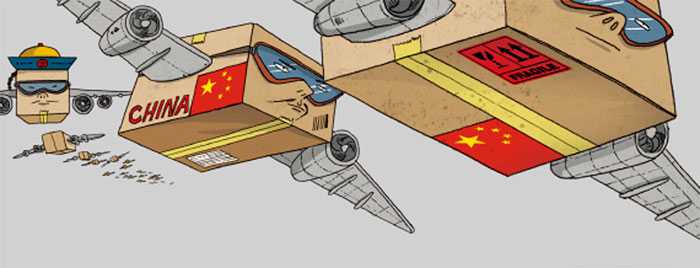Koreans Embrace Cheap Chinese Electronics
18 October, 2018

Koreans are increasingly embracing cheaper Chinese electronics and abandoning their traditional preference for homegrown gadgets.
Koreans made some 882,000 purchases of Chinese products online in the first half of this year, already surpassing the total for the whole of 2017, according to the Korea Customs Service. Purchases snowballed from 301,000 in 2016 to 880,000 last year.
The trend shows how much attitudes have changed. Chinese air purifiers, cordless vacuum cleaners and smartphones rank among the top 10 products that Koreans bought on eBay in the first half of this year.
A key example is the explosive popularity of the new Xiaomi Pocophone F1 that costs only around W300,000, just one-third of the price of the latest Samsung Galaxy Note 9 (US$1=W1,127). Korean consumers have created handy websites comparing the specs of the two devices and giving advice on best online buys.
Chinese home appliances are also increasingly popular after shaking off their unreliable image. On one website, purchases of Xiaomi electric fans surged more than three times this year. They cost only one-third of Japanese-made Balmuda fans but have a similar design and functions.
Purchases of Chinese air purifiers doubled and of vacuum cleaners surged eight times. Dibea cordless vacuum cleaners have much the same functions and quality as the U.K.'s Dysons but cost just 1/10, and Dibea's stockpiles in Korea have run dry.
One staffer at an online shopping mall said, "Korean consumers are turning their eyes on more Chinese products like hair driers and robot vacuum cleaners."
Chinese products were the third most popular online purchases with a mere five percent after the U.S. and Europe in 2015, but China overtook Europe in 2016 and narrowed its gap with the U.S. in the first half of this year to account for 23 percent.
"Koreans buy a lot of health foods from the U.S. online, while fashion dominates purchases from Europe and food purchases from Japan. But electronics dominate purchases from China," a staffer at one retailer said.
The trend is making Korean manufacturers nervous as they realize the need to beat their Chinese rivals not only in terms of price but of quality.
Huh Kyung-ok at Sungshin Women's University said, "Chinese manufacturers used to copy Korean products, but now they have taken on the Korean market by vastly improving quality."
